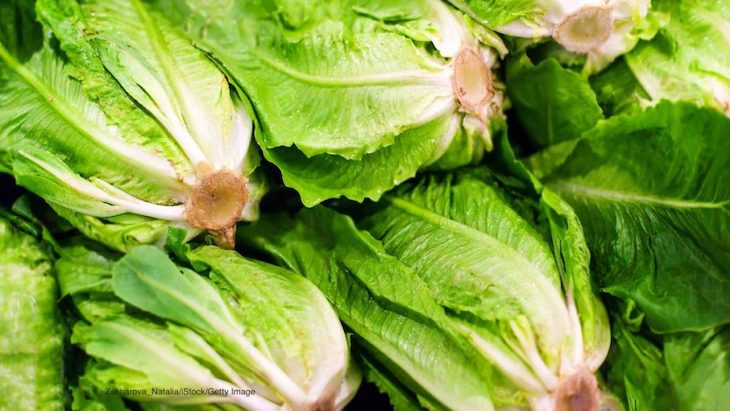UPDATE: There may be as many as 9 people sickened in this possible outbreak, according to some reports. We’ll keep you updated.
According to a notice posted on ProMED-mail on November 14, 2019, a possible Wisconsin E. coli O157 outbreak may be associated with salads. ProMED-mail is a program of the International Society for Infectious Diseases and tracks illnesses and possible disease outbreaks around the world. Launched in 1994, it is considered an early warning system for healthcare workers.

The notice states, “Over the past 5 days, our health care facility in northwest Wisconsin, USA, has seen 3 women hospitalized with _E coli_ O157 infection. All presented with significant abdominal pain without fever and watery diarrhea which in 2 progressed to bloody diarrhea. None of the 3 have manifested any evidence of hemolytic-uremic syndrome. Both of the women seen by the Infectious Diseases service stated that their diet contains a lot of salads.”
The person who posted the request for information is Dr. Larry Lutwick from Eau Claire, Wisconsin. Abdominal pain with no fever that is accompanied by watery and bloody diarrhea are typical symptoms of a Shiga toxin-producing E. coli infection (STEC).
Requests like this are important because there have been several E. coli O157 outbreaks in the U.S. in the past 1-1/2 years linked to romaine lettuce. The last E. coli outbreak, which took place in September 2019 and sickened at least 23 people in 12 states, was associated with romaine lettuce. That outbreak was not announced by the CDC and FDA until October 31, 2019. Two other E. coli O157 outbreaks linked to romaine lettuce ended in June 2018 and in January 2019. At least 272 people were sickened in those two outbreaks, almost 100 were hospitalized, and two people died.

You can contact food safety lawyer Fred Pritzker for help by calling 1-888-377-8900 or 612-338-0202.
Food safety attorney Fred Pritzker, who has represented many people sickened with E. coli infections, said, “Government should inform the public when these outbreaks happen. And growers, along with food processors and distributors, are legally obligated to produce food that is safe to eat.”
A food poisoning outbreak is usually announced when two unrelated people present with symptoms of illness, are diagnosed as sick with the same pathogen, and that pathogen is genetically related through pulsed field-gel electrophoresis or whole genome sequencing. Food safety experts do not understand why the most current romaine E. coli outbreak was not announced until it was long over. The FDA says, “The FDA and the U.S. Centers for Disease Control did not identify actionable information for consumers during this investigation. Additionally, when romaine lettuce was identified as the likely source of the outbreak, the available data at the time indicated that the outbreak was not ongoing and romaine lettuce eaten by sick people was past its shelf life and no longer available for sale.”
If you have been ill with these symptoms, even if you haven’t eaten salads or romaine lettuce, see your doctor. You may be part of this possible Wisconsin E. coli O157 outbreak.
An E. coli O157 infection is a serious illness. One complication from this infection is hemolytic uremic syndrome (HUS), which is a form of kidney failure and can be deadly. This is a reportable illness. E. coli patient isolates are sent to PulseNet, an arm of the CDC that tracks and compares DNA fingerprints of pathogens, to try to find for outbreaks as they are starting and to include patients in current outbreaks.




